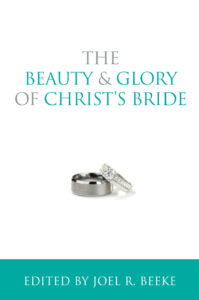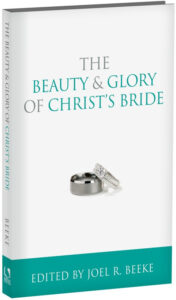Stephen Charnock (1628–1680), a gifted Puritan pastor and theologian, said that we cannot worship God unless we consider Him worthy of worship, and we cannot consider Him worthy of worship unless we know Him in Christ.1Stephen Charnock, The Existence and Attributes of God, in The Complete Works of Stephen Charnock (Edinburgh: James Nichol, 1864), 1:285. I quote his “Discourse upon Spiritual Worship.” That involves three important things.
First, we must know the gospel of Jesus Christ.
The foundation of Puritan worship is the gospel. Jeremiah Burroughs (c. 1600–1646), a Puritan minister known for his peaceable spirit, wrote a book aptly titled Gospel Worship. He said that in worship we draw near to God (Pss. 95:2, 6; 100:2), and no man can come unto Him but through Christ (John 14:6).2Jeremiah Burroughs, Gospel-Worship: or, The Right Manner of Sanctifying the Name of God (London: for Peter Cole and R. W., 1648), 26
All men owe God their worship, for nature itself reveals God as the Creator who obligates us to glorify Him (Rom. 1:20–21). Worship is God’s right by creation (Ps. 100:2–3).3Charnock, The Existence and Attributes of God, 1:288, 321. In worship, we give God the honor a creature owes his Creator.4Burroughs, Gospel-Worship, 27. But since the fall of Adam, no man can give God true worship apart from Jesus Christ.5Charnock, The Existence and Attributes of God, 1:299 Romans 10:14 says: “How then shall they call on him in whom they have not believed? and how shall they believe in him of whom they have not heard? and how shall they hear without a preacher?” We must know God both in His nature and in His covenant of grace as our God through Christ Jesus. Thomas Watson (c. 1620–1686) quipped, “In every part of our worship we must present Christ to God in the arms of faith.”6Cited in John Blanchard, comp., The Complete Gathered Gold (Darlington, England: Evangelical Press, 2006), 686. Without the gospel, our worship falls into idolatry. Perkins said that when we do not know God rightly, we do not worship Him rightly, but we worship the idols of our minds or devils.7Perkins, Divine Worship, 179. Galatians 4:8 says, “Howbeit then, when ye knew not God, ye did service unto them which by nature are no gods.
Second, we must know ourselves as graciously redeemed and adopted children of God.
We must know God, and we must know ourselves as the gospel portrays us—sinners worthy of damnation, but in Christ, adopted sons of God according to His great mercies.8Perkins, Divine Worship, 176–77. Guilty consciences have little inclination to draw near to God in worship, for guilt makes God’s presence frightening to us.9Burroughs, Gospel-Worship, 31–32. By faith in Christ, we worship as forgiven children of the Father. Christ taught that our worship is especially directed to God as Father (John 4:23). Arthur Hildersham (1563–1632), a great Puritan preacher, said that “the better a man is persuaded and assured of God’s fatherly love to him in Christ, the better service he shall do unto him,” for only then can we know that our worship is acceptable to God and so serve Him with childlike love and reverence.10Arthur Hildersham, Lectures upon the Fourth of John (London: by G. M. for Edward Brewster, 1629), 176–77.
Third, we must know God, ourselves, and the glorious gospel experientially.
Our knowledge must be not just in the head, Perkins said, but a spiritual “sense” or experiential knowledge of the grace and love of God, occasioned by a “sight” of our sins and a “feeling” of our spiritual misery, for that alone “breeds in us the true worship of God.”11Perkins, Divine Worship, 176–77. In other words, the foundation of worship is an experiential knowledge of the gospel of Jesus Christ. When the gospel comes home to the heart, then we are prepared to worship.
The Puritan view of worship was rooted in the Reformation’s insight that Christ is our only Mediator with God. Calvin wrote, “Since no man is worthy to present himself to God and come into his sight, the Heavenly Father himself, to free us at once from shame and fear, which might well have thrown our hearts into despair, has given us his Son, Jesus Christ our Lord, to be our advocate and mediator with him.”12Calvin, Institutes, 3.20.17. Thus, Christ is our worship leader. Calvin said that it will “lead us most fervently to praise God, when we hear that Christ leads our songs, and is the chief composer of our hymns.”13John Calvin, Commentaries on the Epistle of Paul the Apostle to the Hebrews, trans. John Owen (Edinburgh: Calvin Translation Society, 1853), 67 (Heb. 2:12). Let us therefore depend upon Christ, that our worship may be pleasing to God. Calvin wrote, “Let us learn to wash our prayers with the blood of our Lord Jesus Christ.”14John Calvin, Sermons on Election and Reprobation (Audubon, N.J.: Old Paths, 1996), 210. See David B. Calhoun, “Prayer: ‘The Chief Exercise of Faith,’” in A Theological Guide to Calvin’s Institutes, ed. David W. Hall and Peter A. Lillback (Phillipsburg, N.J.: P&R Publishing, 2008), 358.
This, then, is the foundation of Puritan worship: knowing a reconciled God through the gospel of Jesus Christ.
How precious it is to worship God through the Mediator! Burroughs said that “Christ takes us by the hand” and brings us into the presence of God so we can offer up our worship.15Burroughs, Gospel-Worship, 27. Hildersham exulted, “Such is the wonderful goodness of God to them whom he loves in Christ, such is the delight that he takes in his own graces, in the fruits of his own Spirit,” that “he takes marvelous delight in our poor services we do unto him.”16Hildersham, Lectures upon the Fourth of John, 186.
Excerpt From
Beauty and Glory of Christ’s Bride
Joel R. Beeke











